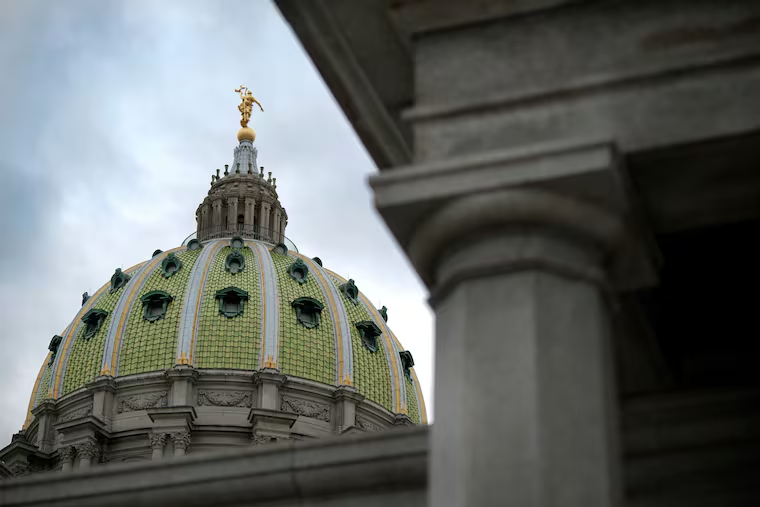Pa. legislature, one of the largest in the country, has become expensive and embarrassing | Opinion
Case in point: Rep. Tallman wants to render high school Government, History, and perhaps even Economics courses illegal.

With this year's legislative session winding down in Pennsylvania, a number of important issues remain unaddressed including child sex-abuse reform, redistricting, and domestic violence protection. These weighty issues notwithstanding, state Rep. Will Tallman (R., Adams, Cumberland) has proposed that Pennsylvania teachers be prohibited from discussing political candidates, government regulation, judicial decisions, and a host of other topics related to government and politics while in the classroom.
In short, Rep. Tallman wants to render illegal high school courses in government, history, and perhaps even economics. Luckily for students in the commonwealth, Tallman's proposal doesn't pass the laugh test, and it will most certainly not pass the legislature. It's hard to imagine that a professional politician would not see the obvious conflict between laws regulating classroom speech and the clear words of the constitutions of both the United States and Pennsylvania.
His proposal to silence political speech would make any reasonable person wonder what exactly it is Pennsylvanians are paying him to do. In Tallman's case, it might not matter as he is retiring at the end of the current term. But given the state of our state, it is more than reasonable to pose the same question to our other elected officials.
According to the National Conference of State Legislatures, Pennsylvania is one of only 10 states with full-time legislatures, and among those, it has the largest number of members plus the second largest permanent legislative staff. Of course, Pennsylvania is among the most populous states. But Texas, as one example, is much larger and seems to make do with much less government. Compared to Pennsylvania, Texas has more than twice the population, six times the area, and three times the economy. Yet Texas manages to do quite well with a legislature that is 30 percent smaller than Pennsylvania's, meets for six months every other year, and is paid one-tenth what Pennsylvania pays its legislators.
And what do we get from our overpaid, overstaffed, overactive legislature? Over the past generation, Pennsylvania's legislature has tripled the state's debt, put a formerly fully-funded state employee pension in hock to the tune of more than $100 billion, raised our state tax on gasoline to more than double the national average, raised our corporate tax rate to the second highest in the country, and earned a ranking of sixth from the bottom for overall fiscal condition.
In exchange, we get lawmakers like Rep. Tallman who want to tell teachers what they may and may not say in the classroom.
Pennsylvania's legislature has become both expensive and embarrassing. If Texas can manage its affairs with a legislature that costs one-tenth of ours, then our legislature is clearly not worth what we pay for it. As luck would have it, our legislative bloat has become so obvious that politicians themselves have noticed.
>> READ MORE: Pa. House wants to stall shrinking the legislature, but state Senate can fix that | Editorial
Over the remaining days of this year's session, Pennsylvania's legislature will consider child sex-abuse reform, redistricting, and domestic violence protection. In addition, they will also consider reducing the number of their members. Both chambers approved a plan last year to shrink the House from 203 to 151 members. That plan requires votes in two successive years, and there are just a few days left this year to hold the second vote. Ignoring Tallman's foolishness should leave plenty of time.
Antony Davies is associate professor of economics at Duquesne University. James R. Harrigan teaches in the department of Political Economy and Moral Science at the University of Arizona. They host the weekly podcast, Words & Numbers.